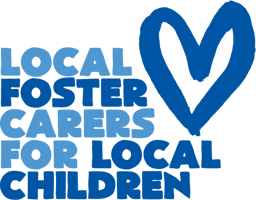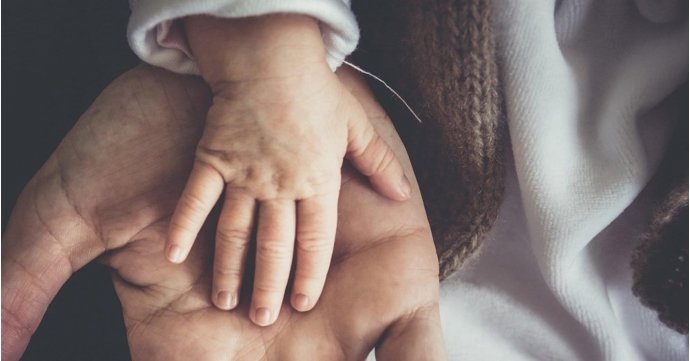From activities and celebrations to sleepovers and short breaks, Gloucestershire
County Council's Fostering Service has fully embraced the pioneering
Mockingbird programme, launched by The Fostering Network in the UK in 2015 to deliver
sustainable foster care, providing an extended foster family you can call upon — benefitting both carers and young people.
SoGlos chats to longtime foster carers Paul and Fiona Regan about their roles as hub home carers, the Mockingbird system
and how it replicates an extended family system for children in care.
Could you tell us a little bit about your background and how you came to be hub home carers for GCC?
Paul: We've been fostering for about 10 years after initially became involved through a kinship route. A friend of our daughter needed somewhere to stay after her relationship with her parents broke down and we were asked if we could look after her. By helping and being able to offer her an opportunity that she wouldn't otherwise have had, we felt that we had something to offer, which in time led us on to the rollercoaster of mainstream fostering.
So really, we sort of fell into it because fostering wasn’t on our agenda at that point. A year or so after this starting point — and because the young person was happy — we were asked if we would be interested in becoming proper foster carers — whatever that means! — and as we felt so positive about the impact we could and had achieved we went for it!
This meant rather than having people that were known to us (i.e. kinship), we moved on to becoming mainstream carers, so we could potentially look after anybody that needed a foster placement. Over the last 10 years we have looked after many more children, the youngest being 10 weeks old whilst the majority have been teenagers.
Mockingbird was something that we'd heard about a few years ago with the initial launch in Gloucester. We had two teenagers with us at the time and were without adequate space as you need to have one spare bedroom always available, plus an extra room and spare bed for an emergency. We didn't fit the criteria for being hub home carers at that point, even though we thought it was a wonderful idea.
About half a year after the first constellation was successfully set up in Cheltenham, Gloucester was looking to repeat the process and as one of our young people had moved on by then, we thought we would apply – the rest is history…
Could you explain what the Mockingbird model is and the part you both play within this?
Paul: To us, it's like an extended family or a support network.
Mockingbird constellations are made up of up to 10 fostering families, living within proximity of the hub home who come together and support each other, much as a typical family would do.
Generally, with fostering you tend to work in silos — carers being careful over sharing information often not even using names to allow young people anonymity. It's something we have got used to but it can feel impersonal. This changes within the constellation as we all know each other and this cultivates and encourages friendships and relationships within the group — both amongst the carers and the children.
What’s really nice about Mockingbird is that all the children in the constellation appreciate and understand each other’s situation as they are all in some form of care, unlike the children they may mix with at school.
Here, they don't feel different anymore. In school they can often be embarrassed about their situation or feel that people are watching them and as a result be very self-conscious about that. This initiative helps all the children come together, they know they're all the same and positive dynamics and friendships have been built up as a result.
How does your role differ to that of a traditional foster carer?
Fiona: We can offer short breaks to the children in our constellation for up to three nights without having to ask anybody. Our role takes out the middleman with social services — having to talk to a social worker, then talking to placement, then finding somebody... so that's different and a far more efficient use of time. It also reduces unneeded and unwanted stress for our carers.
It's not just us though, carers in our constellation have offered other families help too, such as daycare or an overnight stay or in one of the cases a holiday break. Whilst we may be seen as leading the constellation, we're more part of a team that work together to provide support for each other.
Paul: We do try to help to organise things and make them run smoothly within the constellation and if a family needs support, they can come to us but there have been times when others who have had more or better experience in some situations will come forward and offer their support. It’s a fantastic way to share knowledge and support each other.
How do families apply to be part of a Mockingbird scheme?
Paul: The first stage is to identify a 'hub home' which dictates a catchment area. This is followed by a letter or invite being sent out to see how many carers within a 30-minute radius of that home may want to join. On receipt of these applications, carers are interviewed to ascertain their suitability for being part of the group.
We have heard, as the scheme gets more traction, that a lot of people would be interested in joining Mockingbird, initially because it's good for emergency care, sleepovers and that sort of thing but there is so much more to it than that and the ability to be able to chat or share within the group and build relationships with other carers and children is in fact the glue that keeps the groups going. The sleepover support becomes an added bonus.
Fiona: Whenever we have spoken to anybody about the concept and the benefits of Mockingbird, I don't think we've had any foster carers that aren't interested.
We find that that our role means advocating not only for the children but for the carers too. When you've got other people to talk to and offload to, it makes a huge difference.
In what ways does the constellation provide children with experiences similar to being part of an extended family?
Paul: It breaks down barriers and allows children and carers to mix together in a friendly and relaxed atmosphere. Over time we share more and more experiences and have more to discuss and reminisce about because we are spending time together.
Fiona: One of the most successful get-togethers we had, which was quite funny, was just before we went on holiday. We just had a chippy tea at our house. The children ran about and played in the garden and in the house — whilst the carers chatted and tried to keep up with what the children were doing. Many children didn’t want to leave that night as they had been having such a good time and it was simple.
We have also run activities at Jumping Fun in Cheltenham; Ninja Warrior; Cotswold Park and Beach; picnics; crazy golf; a Christmas disco...
What are the biggest benefits of the Mockingbird model for carers and children, in your experience?
Paul: We enjoy having the variety of children at different times; we know that this benefits carers whether they're having a night off or a weekend away because they can feel confident that their child is in a place they are happy with and with someone they know. Some of the younger children seem to view it as a mini adventure and often like the change in their normal routine that a stay with us entails.
Fiona: I think it's lovely when we all get together and see people in the group talking about a shared experience. It breaks down barriers often assoicated with fostering — if you aren't surrounded by supportive people, it can feel quite lonely.
Often, as carers, just a chat and the chance to unload to somebody is all you need to get past a problem — whether you're a lone foster carer or a couple, if you haven't got anybody else to talk to and things start going wrong, then you can become introverted. You go in on yourself and you start questioning yourself and your actions — having support and reassurance or guidance is a huge benefit
Basically, when you've got other people to talk to, it makes a huge difference. I think sometimes people will talk more freely to us because we're not social services.
With the children, when some of the younger girls in the constellation visit, they like me to do their hair because their carers may not be very experienced with long hair though they like Paul to read them bedtime stories as in fostering it is generally the female that takes the leading role, whereas we do things equally, maybe it’s a novelty for them!
What skills or qualities do you think are essential for someone in this role?
Fiona: Patience, organisation, being calm.
Paul: You've got to be able to adapt and compromise. For example, if you get a very angry child, you can't really fight fire with fire.
We had something recently where one of our carers' young lads had a detention at school; the carer said they were going to turn the internet off as a consequence. I explained that in my opinion, they didn't need to do that as he's already been punished and all they would be doing is adding to it and possibly creating a barrier with him. Acknowledge the detention but suggest we try better in future so rather than pushing somebody away with further actions, you're pulling them closer and saying that it's not the best thing but let's move forward.
What’s one piece of advice you would offer to new satellite carers joining your constellation?
Paul: Join in, we’re a friendly group and you’ll get as much as you need out of it but participation is key. Don’t be worried about speaking out or offering an opinion.
Of course, it's
more difficult if you're joining a more established group as you may initially
feel like a little bit of an outsider but everybody's welcoming and they're in
it for the same reasons.
It's just a case of taking the plunge because once you're once you're in...
it's a little bit like jumping into a cold pool for the first time — it doesn’t
take long to warm up and feel more comfortable.
For more information, visit gloucestershire.gov.uk/fostering or email fostering@gloucestershire.gov.uk.




















